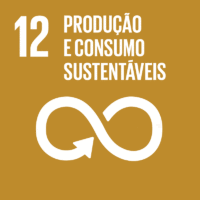Ciência_Iscte
Comunicações
Descrição Detalhada da Comunicação
Food system transition, territory and policies
Título Evento
12th CITTA International Conference on Planning Research
Ano (publicação definitiva)
2019
Língua
Inglês
País
Portugal
Mais Informação
Web of Science®
Esta publicação não está indexada na Web of Science®
Scopus
Esta publicação não está indexada na Scopus
Google Scholar
Esta publicação não está indexada no Overton
Abstract/Resumo
The transition of food systems towards sustainability implies structural changes, namely the development of organic farming and alternative supply chains, where bottom-up experiments play a major role.
In the case of food systems, the centrality of territorial units and scales is fundamental. Additionally, the multidimensionality of the innovation process with the inclusion of social, organizational and legal dimensions has to be considered.
Bearing this in mind, the paper addresses the role of Metropolitan Areas in the food systems transition focusing on the case of Lisbon Metropolitan Area (LMA). This case is analysed according the following analytical dimensions: i) characterization of the Lisbon Metropolitan Area in socioeconomic and governance terms, namely land use patterns; ii) identification of the relevant policies involved, namely the Common Agricultural Policy; iii) presentation of bottom-up experiments located in LMA within the theoretical framework of the transition studies.
The case studies were conducted on initiatives in the LMA food value chain (e.g. MARL, Quinta do Arneiro, Biofrade, Projecto Muita Fruta, Mercado Bio do Lumiar, Cantina de Escola Básica dos Olivais, etc.). In terms of results, the study identifies the main elements explaining the emergence and development of bottom-up experiments in LMA food system envisaging the transition towards sustainability, in a multidimensional perspective.
The research has been developed within the project Spatial Planning for Change (SPLACH), through an interdisciplinary approach, resorting mostly to the transitions literature and economic geography.
Agradecimentos/Acknowledgements
Project SPLACH – Spatial planning for change
Palavras-chave
Food Systems,Sustainability Transitions,Territory,Lisbon Metropolitan Area,bottom-up experiments
Classificação Fields of Science and Technology
- Economia e Gestão - Ciências Sociais
- Geografia Económica e Social - Ciências Sociais
Registos de financiamentos
| Referência de financiamento | Entidade Financiadora |
|---|---|
| POCI-01-0145-FEDER-016431 | European Regional Development Fund (FEDER), through COMPETE2020 - Competitiveness and Internationalization Operational Program (POCI) and by National funds through the Foundation for Science and Technology FCT |
Contribuições para os Objetivos do Desenvolvimento Sustentável das Nações Unidas
Com o objetivo de aumentar a investigação direcionada para o cumprimento dos Objetivos do Desenvolvimento Sustentável para 2030 das Nações Unidas, é disponibilizada no Ciência_Iscte a possibilidade de associação, quando aplicável, dos artigos científicos aos Objetivos do Desenvolvimento Sustentável. Estes são os Objetivos do Desenvolvimento Sustentável identificados pelo(s) autor(es) para esta publicação. Para uma informação detalhada dos Objetivos do Desenvolvimento Sustentável, clique aqui.

 English
English



